March 21 stands as one of history’s most eventful days, witnessing the rise and fall of empires, groundbreaking discoveries, and moments that shaped our modern world across centuries of human achievement.

Politics and Government Events on March 21
1919 – Hungarian Soviet Republic Established
The Hungarian Soviet Republic emerged as Europe’s first Communist government following the Russian October Revolution. Revolutionary leader Béla Kun proclaimed the new socialist state amid post-war chaos.
The Communist regime implemented radical land redistribution and industrial nationalization policies. However, foreign intervention and internal opposition would ultimately doom this ambitious political experiment within months.
1925 – Syngman Rhee Impeached from Korean Provisional Government
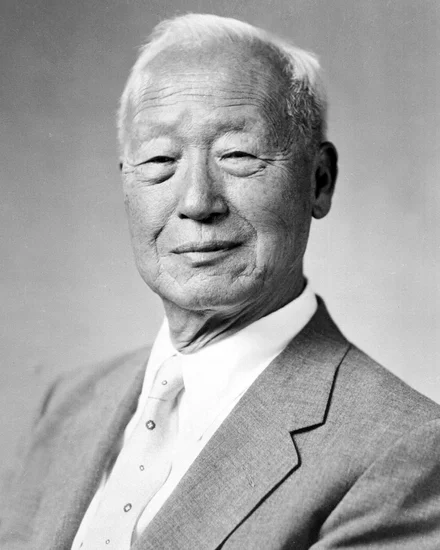
The Korean Provisional Government removed Syngman Rhee from his presidential position following his impeachment proceedings. Political tensions within the exile government had reached a breaking point over leadership disputes.
Rhee’s removal reflected deep divisions among Korean independence activists regarding strategy and governance. His later return to power in South Korea would prove these early political struggles were far from over.
1934 – Australian Eastern Mission Departs
John Latham led Australia’s landmark diplomatic mission on a comprehensive three-month tour of East and Southeast Asia. The mission represented Australia’s growing recognition of its strategic position in the Pacific region.
Australian officials sought to strengthen trade relationships and gather intelligence about regional political developments. This diplomatic initiative marked Australia’s emerging independence in foreign policy from British imperial oversight.
1990 – Namibia Gains Independence
Namibia achieved independence after enduring 75 years of South African apartheid rule and international legal battles. The new nation celebrated its freedom with Sam Nujoma becoming the first president.
International sanctions and armed resistance had finally forced South Africa to relinquish control of the territory. Namibia’s independence represented a crucial victory for the global anti-apartheid movement and African liberation struggles.
Military and Naval History on March 21
1918 – German Spring Offensive Begins
Operation Michael launched as Germany’s massive spring offensive aimed at breaking the Western Front stalemate. German forces concentrated their remaining strength for one final decisive push against Allied positions.
The offensive initially achieved significant territorial gains using innovative storm trooper tactics and artillery bombardments. However, the attack ultimately failed to achieve breakthrough victory, hastening Germany’s eventual defeat.
1943 – Nazi Assassination Plot Fails
Wehrmacht officer Rudolf von Gersdorff attempted to assassinate Adolf Hitler using a suicide bomb during a museum visit. The German officer had planned to detonate explosives while accompanying Hitler through the exhibition.
Hitler’s unexpectedly brief tour forced Gersdorff to abandon his mission and frantically defuse the bomb. The failed assassination attempt remained one of several unsuccessful plots against the Nazi leader.
1945 – British Forces Liberate Mandalay
British troops successfully liberated the strategic Burmese city of Mandalay from Japanese occupation forces. The victory marked a crucial turning point in the Burma Campaign’s final phase.
Local resistance fighters had provided valuable intelligence and support to advancing British forces. Mandalay’s liberation opened the path toward complete Japanese expulsion from Burma and Allied victory in Southeast Asia.
1945 – RAF Bombs Copenhagen Gestapo Headquarters
Operation Carthage saw Royal Air Force planes target Gestapo headquarters in Copenhagen to disrupt Nazi security operations. The precision bombing mission aimed to destroy crucial intelligence files and free Danish resistance prisoners.
Tragically, several aircraft accidentally struck a nearby school, killing 125 innocent civilians in the process. The operation’s mixed results highlighted the terrible complexities and unintended consequences of urban warfare.
Science and Discovery Milestones on March 21
1965 – NASA Launches Ranger 9
NASA launched Ranger 9 as the final mission in its groundbreaking series of uncrewed lunar space probes. The spacecraft carried advanced cameras designed to photograph the Moon’s surface before impact.
Ranger 9 transmitted over 5,800 high-quality images during its final descent toward the lunar surface. These detailed photographs provided crucial data for planning future Apollo landing missions and advancing lunar exploration.
1999 – First Hot Air Balloon Circumnavigation

Bertrand Piccard and Brian Jones achieved the first successful circumnavigation of Earth in a hot air balloon. Their Breitling Orbiter 3 completed the historic journey after previous attempts had failed.
The balloon traveled over 25,000 miles during its epic 19-day flight around the globe. This remarkable achievement demonstrated human ingenuity and the potential for alternative aviation technologies.
2000 – Pope John Paul II Visits Israel
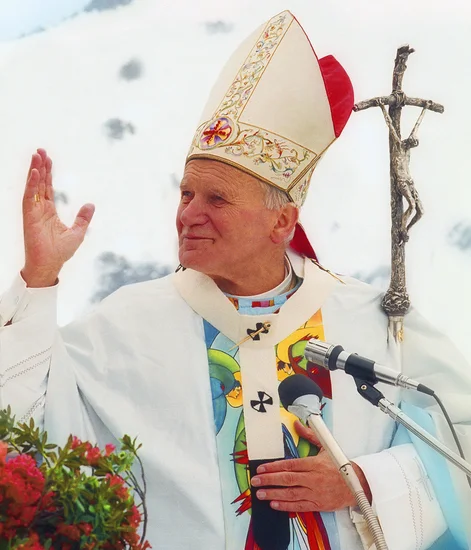
Pope John Paul II made his first pontifical visit to Israel, marking a historic milestone in Catholic-Jewish relations. The Pope’s journey represented decades of efforts to improve interfaith dialogue and understanding.
His visit included emotional moments at the Western Wall and Holocaust memorial sites. The papal visit significantly advanced reconciliation between the Catholic Church and the Jewish people after centuries of tension.
2006 – Twitter Founded
Jack Dorsey and his team launched Twitter, the social media platform that would revolutionize global communication. The service initially allowed users to share 140-character messages called “tweets.”
Twitter’s simple format enabled rapid information sharing and real-time global conversations. The platform would later become a powerful tool for political movements, breaking news, and cultural discourse worldwide.
Cultural and Arts Events on March 21
1925 – Ravel’s L’enfant et les sortilèges Premieres

Maurice Ravel’s enchanting opera L’enfant et les sortilèges premiered at the prestigious Opéra de Monte-Carlo. The production featured a libretto by renowned French author Colette.
The opera’s innovative score combined traditional orchestration with jazz influences and exotic musical elements. Critics praised the work’s imaginative storytelling and Ravel’s masterful composition techniques.
1952 – First Rock and Roll Concert

Alan Freed presented the Moondog Coronation Ball in Cleveland, Ohio, widely recognized as the first rock and roll concert. The groundbreaking event attracted thousands of enthusiastic music fans.
The concert featured pioneering rhythm and blues artists who would shape the emerging rock and roll genre. This historic event launched a musical revolution that would transform American popular culture forever.
1970 – San Diego Comic-Con Inaugural Event
San Diego Comic-Con hosted its first convention, beginning what would become the world’s largest pop culture festival. The initial gathering attracted a small but passionate group of comic book enthusiasts.
The convention featured comic book dealers, artists, and fans sharing their passion for sequential art. This humble beginning would eventually grow into a massive entertainment industry showcase attracting hundreds of thousands of visitors.
Religious and Social Events on March 21
1960 – Sharpeville Massacre
South African police opened fire on peaceful black demonstrators protesting apartheid pass laws in Sharpeville township. The brutal attack killed 69 people and wounded 180 others.
The massacre shocked the international community and galvanized worldwide opposition to apartheid. This tragic event marked a turning point in the anti-apartheid struggle and intensified global sanctions against South Africa.
1965 – Selma to Montgomery March Begins
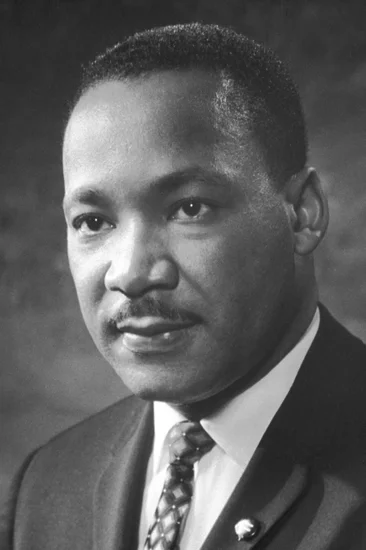
Martin Luther King Jr. led 3,200 civil rights activists on the historic march from Selma to Montgomery, Alabama. The peaceful demonstration demanded voting rights for African Americans in the South.
Federal protection enabled the marchers to complete their journey after previous attempts had been violently suppressed. The successful march directly contributed to passage of the landmark Voting Rights Act later that year.
1970 – First Earth Day Proclamation

San Francisco Mayor Joseph Alioto issued the first Earth Day proclamation, launching the modern environmental movement. The declaration called for increased awareness of environmental protection and conservation.
The proclamation inspired similar declarations across the United States and helped organize the first nationwide Earth Day celebration. This grassroots movement would transform environmental consciousness and policy throughout America.
Business and Economic Events on March 21
1921 – New Economic Policy Implemented
The Bolshevik Party implemented the New Economic Policy in response to the catastrophic economic failures of war communism. Lenin’s pragmatic approach allowed limited private enterprise and market mechanisms.
The policy permitted small businesses and private agriculture while maintaining state control over major industries. This economic compromise helped stabilize the Soviet economy during its crucial early years.
1928 – Lindbergh Receives Medal of Honor
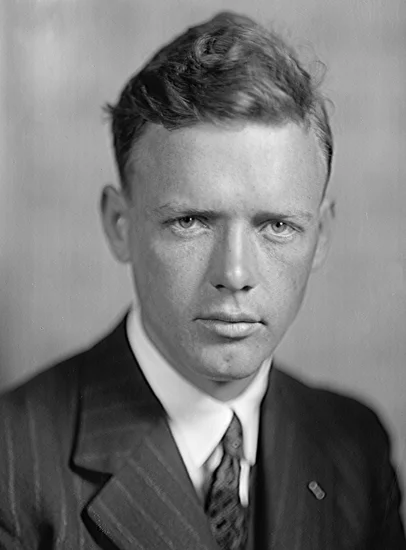
Charles Lindbergh received the Medal of Honor for his groundbreaking solo trans-Atlantic flight from New York to Paris. The prestigious award recognized his extraordinary courage and aviation achievement.
Lindbergh’s historic flight had captured global attention and demonstrated the potential for commercial aviation. His achievement helped establish America as a leader in aviation technology and sparked public interest in air travel.
1935 – Persia Becomes Iran
Shah Reza Pahlavi formally requested the international community to call Persia by its native name, Iran. The name change reflected the country’s desire to assert its national identity and sovereignty.
The transition symbolized Iran’s modernization efforts and rejection of colonial-era terminology. This diplomatic initiative helped establish Iran’s position as an independent nation on the world stage.
Transportation and Infrastructure on March 21
1963 – Alcatraz Federal Penitentiary Closes

The infamous Alcatraz Federal Penitentiary officially closed its doors after nearly three decades of operation. The island prison had housed some of America’s most notorious criminals.
High operational costs and deteriorating facilities made the prison unsustainable for continued use. The closure marked the end of an era in American corrections and federal law enforcement.
1985 – Rick Hansen Begins Wheelchair Journey
Canadian paraplegic athlete Rick Hansen began his ambitious wheelchair circumnavigation of the globe. The “Man in Motion” tour aimed to raise awareness and funds for spinal cord injury research.
Hansen’s incredible journey would cover over 40,000 kilometers across 34 countries over two years. His determination inspired millions while advancing medical research and changing perceptions about disability.
1989 – Transbrasil Flight 801 Crashes

Transbrasil Flight 801 crashed into a slum near São Paulo/Guarulhos International Airport, killing 25 people. The tragic accident highlighted aviation safety concerns in Brazilian commercial aviation.
The crash prompted investigations into airport approach procedures and aircraft maintenance standards. Brazilian authorities implemented new safety protocols to prevent similar tragedies in the future.
Sports and Recreation on March 21
1946 – Kenny Washington Breaks NFL Color Barrier
The Los Angeles Rams signed Kenny Washington, making him the first African American player in professional football since 1933. The historic signing broke the NFL’s longstanding color barrier.
Washington’s groundbreaking contract paved the way for integration throughout professional sports. His courage and talent helped demonstrate that athletic ability transcended racial boundaries.
1980 – US Announces Olympic Boycott
President Jimmy Carter announced the United States would boycott the 1980 Summer Olympics in Moscow. The decision protested the Soviet Union’s military intervention in Afghanistan.
The boycott affected hundreds of American athletes who had trained for years to compete. This Cold War political decision demonstrated how international tensions could impact global sporting events.
1986 – Debi Thomas Wins World Figure Skating Championship
Debi Thomas became the first African American to win the World Figure Skating Championships. Her historic victory broke racial barriers in the predominantly white sport.
Thomas’s achievement inspired a new generation of diverse athletes to pursue figure skating. Her success helped demonstrate that excellence in sports could transcend traditional racial boundaries.
Notable Births on March 21
1904 – Forrest Mars Sr. Born

American candy entrepreneur Forrest Mars Sr. entered the world, destined to revolutionize the confectionery industry. His innovative approach to candy manufacturing would transform global sweets production.
Mars created iconic products including M&M’s and the Mars bar during his remarkable career. His business empire would eventually become one of the world’s largest privately-held companies.
1925 – Peter Brook Born
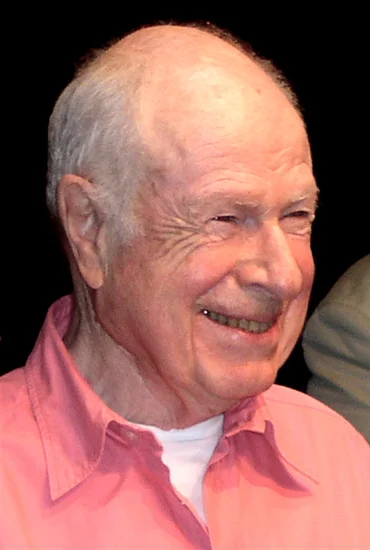
Legendary English theater director Peter Brook was born in London, beginning a life dedicated to dramatic arts. His innovative staging techniques would revolutionize modern theater production.
Brook’s experimental approach challenged traditional theatrical conventions and influenced generations of directors. His work bridged classical and contemporary performance styles with extraordinary artistic vision.
1946 – Timothy Dalton Born

Welsh actor Timothy Dalton was born in Colwyn Bay, Wales, beginning his journey toward international stardom. His classical training would prepare him for diverse dramatic roles.
Dalton would later portray James Bond in two films during the 1980s. His serious interpretation of the character brought literary authenticity to the iconic spy franchise.
1958 – Gary Oldman Born

English actor Gary Oldman was born in New Cross, London, beginning his path to becoming one of cinema’s most versatile performers. His intense method acting would earn critical acclaim.
Oldman’s chameleon-like ability to transform into characters made him one of Hollywood’s most sought-after actors. His performances would span from villains to heroes across multiple decades.
1962 – Matthew Broderick Born

American actor Matthew Broderick was born in New York City, destined for teenage stardom and Broadway success. His youthful charm would define 1980s coming-of-age cinema.
Broderick’s breakthrough role in “Ferris Bueller’s Day Off” made him a cultural icon. His career would successfully transition from teen movies to serious dramatic and Broadway performances.
1962 – Rosie O’Donnell Born

American actress and talk show host Rosie O’Donnell was born in Commack, New York. Her boisterous personality and quick wit would make her a beloved entertainment figure.
O’Donnell’s career spanned stand-up comedy, Broadway, television, and film. Her advocacy for various causes would make her an influential voice beyond entertainment.
1980 – Ronaldinho Born

Brazilian football legend Ronaldinho was born in Porto Alegre, beginning his journey to global soccer stardom. His exceptional skills would captivate football fans worldwide.
Ronaldinho’s creativity and flair revolutionized modern football with his innovative techniques. His joyful playing style brought artistry and entertainment to the beautiful game.
Notable Deaths on March 21
1999 – Ernie Wise Dies
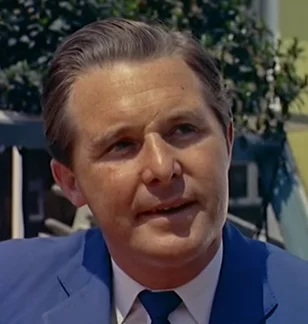
English comedian Ernie Wise passed away, ending his legendary partnership with Eric Morecambe. The comedy duo had entertained British audiences for decades with their television shows.
Wise’s straight-man persona perfectly complemented Morecambe’s manic energy in their classic routines. Their influence on British comedy remained immeasurable long after their performances ended.
2001 – Chung Ju-yung Dies
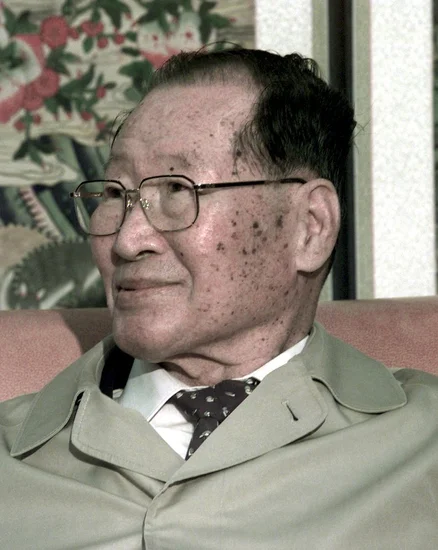
South Korean business magnate Chung Ju-yung died, leaving behind the massive Hyundai industrial empire. His entrepreneurial vision had transformed South Korea’s economic landscape.
Chung’s company grew from a small construction firm into a global conglomerate spanning automobiles, shipbuilding, and electronics. His success embodied South Korea’s remarkable economic transformation.
2011 – Pinetop Perkins Dies
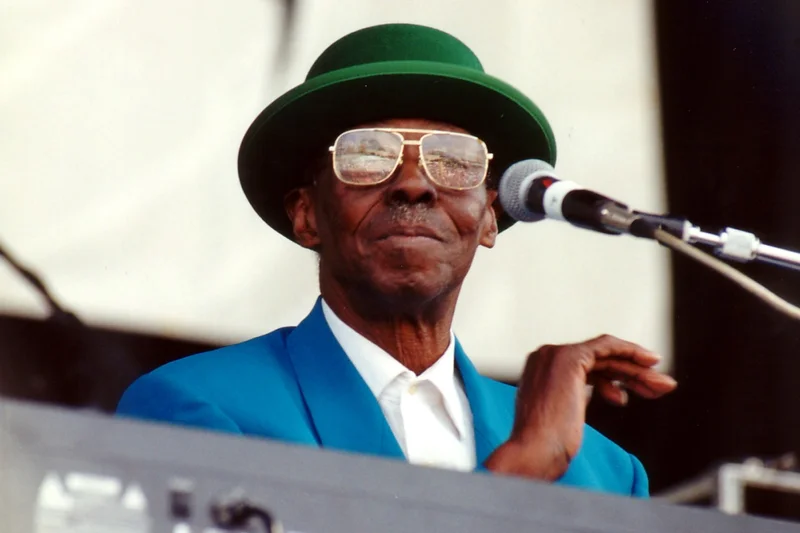
Blues piano legend Pinetop Perkins passed away at age 97, ending an extraordinary musical career. His boogie-woogie piano style had influenced generations of blues musicians.
Perkins had played with blues legends including Muddy Waters and performed well into his nineties. His longevity and talent made him one of the last links to blues music’s golden age.
2013 – Chinua Achebe Dies
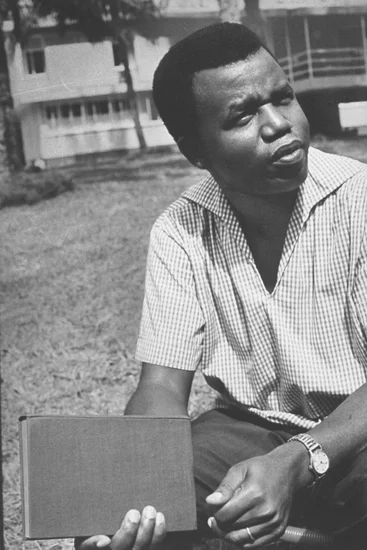
Nigerian novelist Chinua Achebe died, leaving behind a towering literary legacy that transformed African literature. His novel “Things Fall Apart” became one of the most widely read African books.
Achebe’s writing explored the collision between traditional African culture and colonial influences. His work gave voice to African experiences and perspectives in world literature.
2017 – Martin McGuinness Dies

Irish republican leader Martin McGuinness passed away after playing a crucial role in Northern Ireland’s peace process. His transformation from IRA commander to political leader exemplified reconciliation.
McGuinness served as deputy First Minister and helped maintain peace in Northern Ireland. His death marked the end of an era for a generation that had lived through decades of conflict.
Holidays and Observances on March 21
International Day for the Elimination of Racial Discrimination
The United Nations designated March 21 as International Day for the Elimination of Racial Discrimination, commemorating the Sharpeville Massacre victims. This solemn observance promotes racial equality and human rights worldwide.
The day encourages global reflection on racism’s continuing impacts and the need for inclusive societies. Educational programs and awareness campaigns help combat prejudice and promote understanding across cultural boundaries.
World Poetry Day
UNESCO established World Poetry Day to celebrate the unique ability of poetry to capture the human spirit. The observance promotes linguistic diversity and encourages emerging poets worldwide.
Poetry readings, workshops, and cultural events mark this celebration of literary expression. The day recognizes poetry’s power to foster dialogue and understanding between diverse communities.
Independence Day (Namibia)
Namibia celebrates its Independence Day, marking freedom from South African apartheid rule in 1990. The national holiday commemorates the end of decades of struggle for self-determination.
Festivities include parades, cultural performances, and patriotic ceremonies throughout the country. The celebration honors those who fought for independence and affirms Namibian national identity.
International Day of Forests

The United Nations proclaimed the International Day of Forests to raise awareness about forest conservation and sustainable management. The observance highlights forests’ crucial role in global environmental health.
Environmental organizations coordinate tree-planting campaigns and educational programs on forest preservation. The day emphasizes the urgent need to protect remaining forests from deforestation and climate change.
